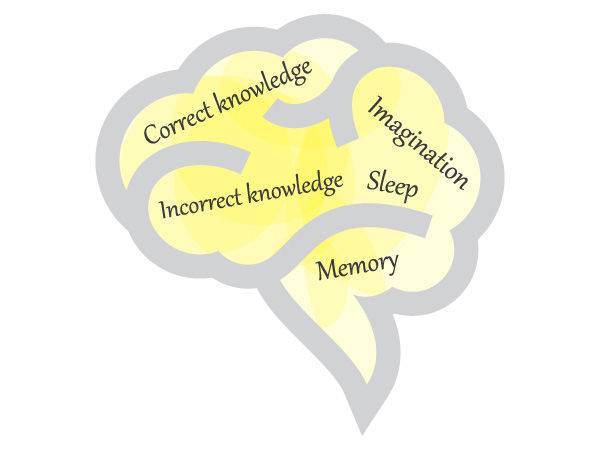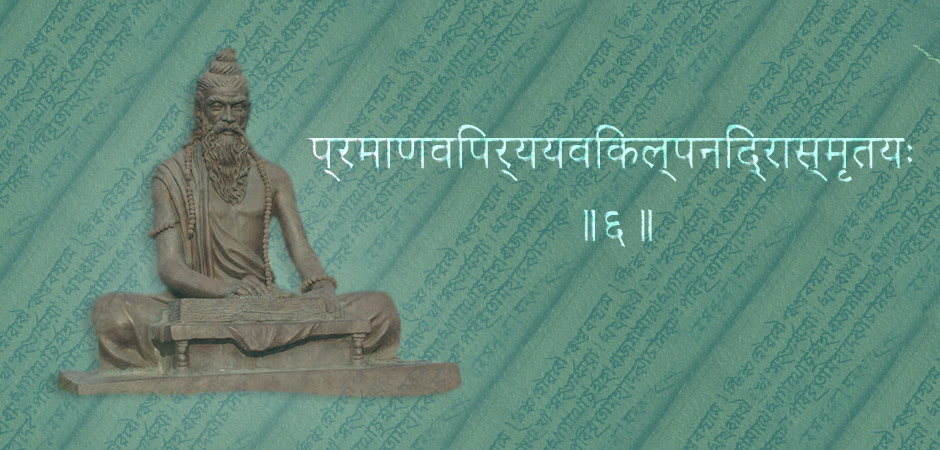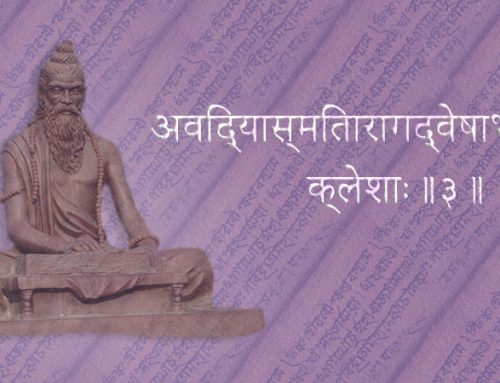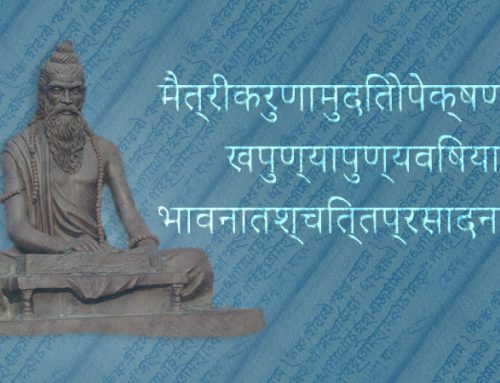Pramana Viparyaya Vikalpa Nidra Smrtayah
Sutra 1.6 lists the five movements (vrtti in Sanskrit) of the mind: Correct knowledge; incorrect knowledge; imagination; sleep; and memory.
Sutra 1.7 Explains that correct knowledge (pramana) comes from three possible sources: direct experience, indisputable evidence or reliable testimony. So to know for sure something is true either you need to have seen it for yourself, to have drawn the conclusion from compelling evidence or learnt it from a trusted source.
1.8 Tells us that much of what the mind throws at us actually comes from incorrect knowledge (viparyaya). This is when thoughts are based in misunderstanding, miscommunication or misconception. In relationships so much pain and suffering can be caused simply because we have been misunderstood or have drawn mistaken inference in communication.

The mind is tricky and will often present ideas as if they are fact. In reality these thoughts are often only partially based on what is actually truth. It could be judgments based on information that is not the whole picture; it could be thinking filtered through your layers of conditioning and preconceived perceptions; or it could be caused by miscommunication or misinterpretation of information. It is all too easy to then form beliefs that are not actually true.
All our teacher trainings and retreats include yogic philosophy sessions.
To continue this philosophical exploration and to find out more on imagination; sleep; and memory head to our website
1.9 Explores the dangerous role of imagination (vikalpa), warning us that delusions arise when words or communication have no actual substance. If we give weight to empty words, or give credence to insubstantial communication – with others and also to ourselves in our own mind – we can be caught up in misapprehension and misconception.
1.10 Explains that even in deep sleep (nidra) the mind remains active, although there is a perception of the absence of movements of the mind.
1.11 Reminds us that memories (smrtayah) are the resurfacing of changeable impressions of past experiences. The very fact that memories are inconsistent should caution us that they are unreliable.
Coming to understand that many of our thoughts are not based on correct knowledge can help free us from negative thoughts and patterns. Next time you have an unhelpful or unconstructive thought about someone, something or some aspect of yourself – ask yourself: ‘Can I be sure that this is coming from absolutely correct knowledge’.





